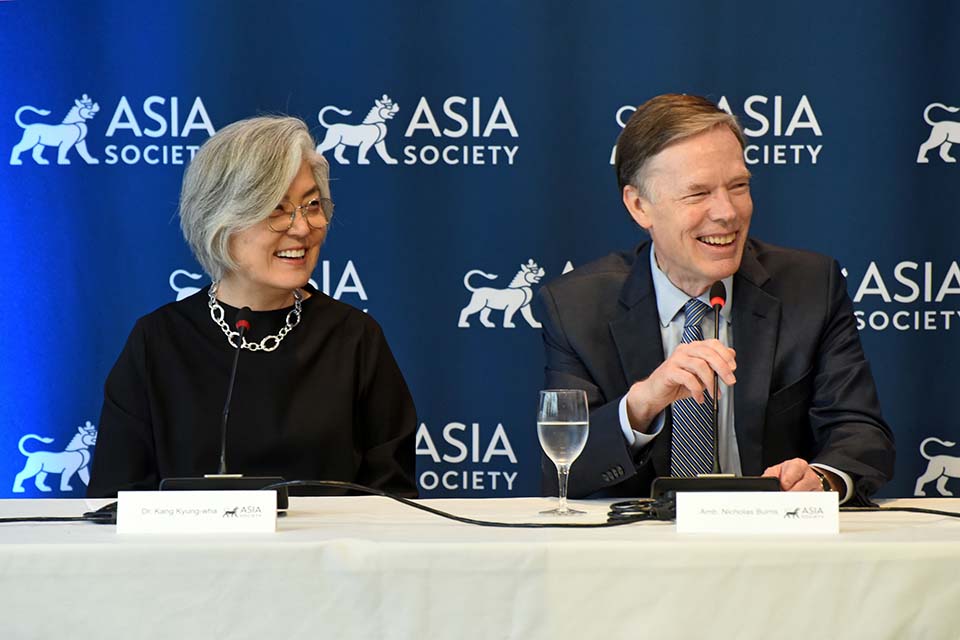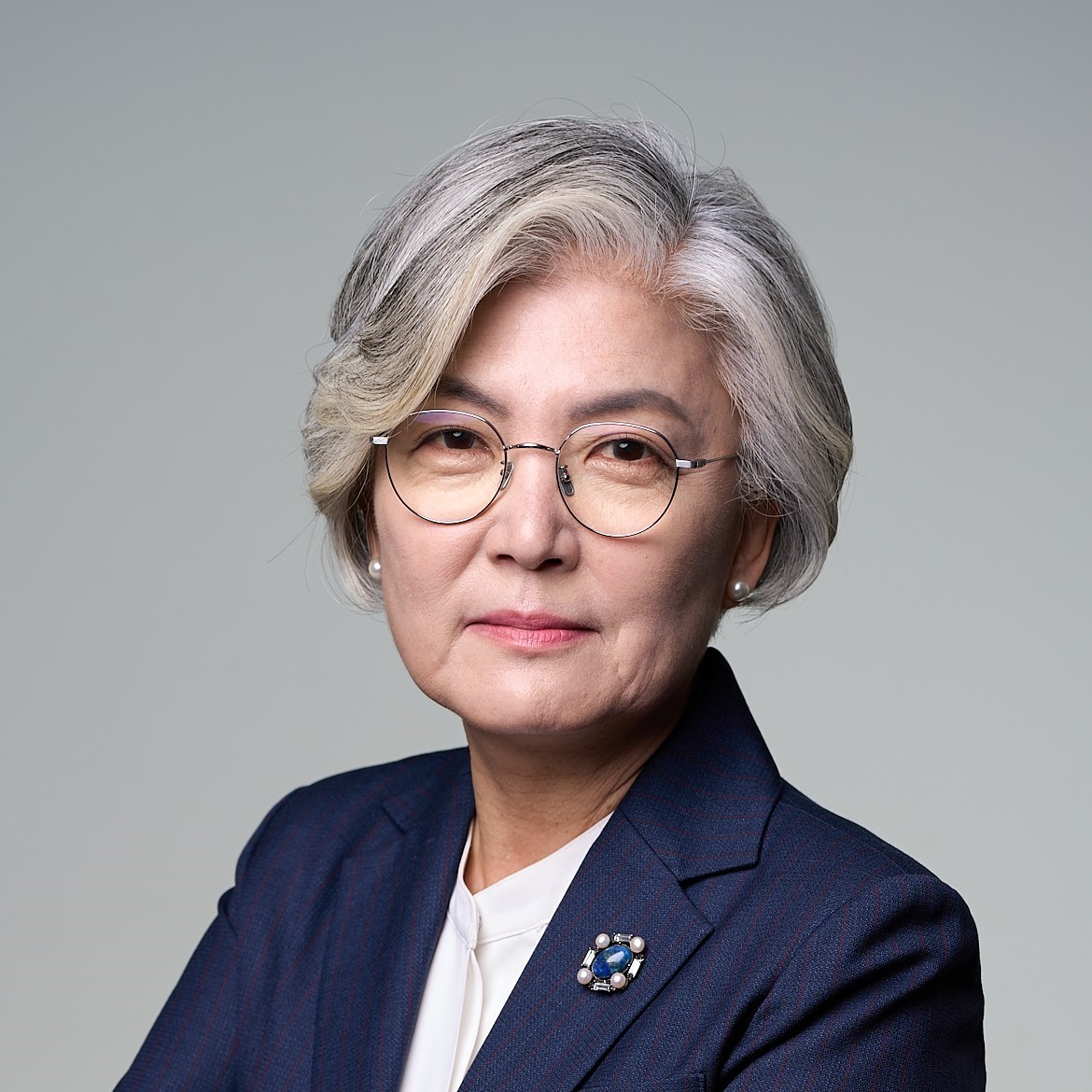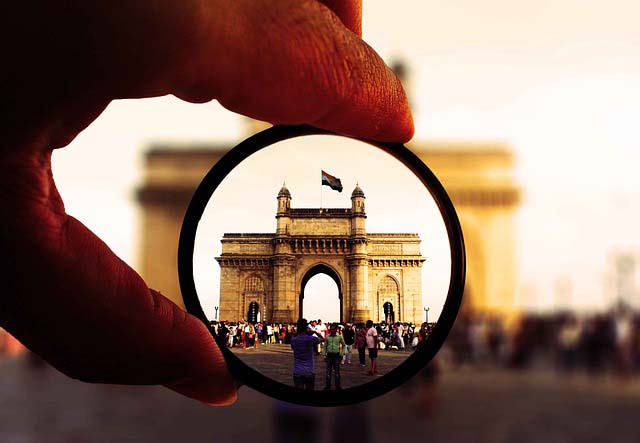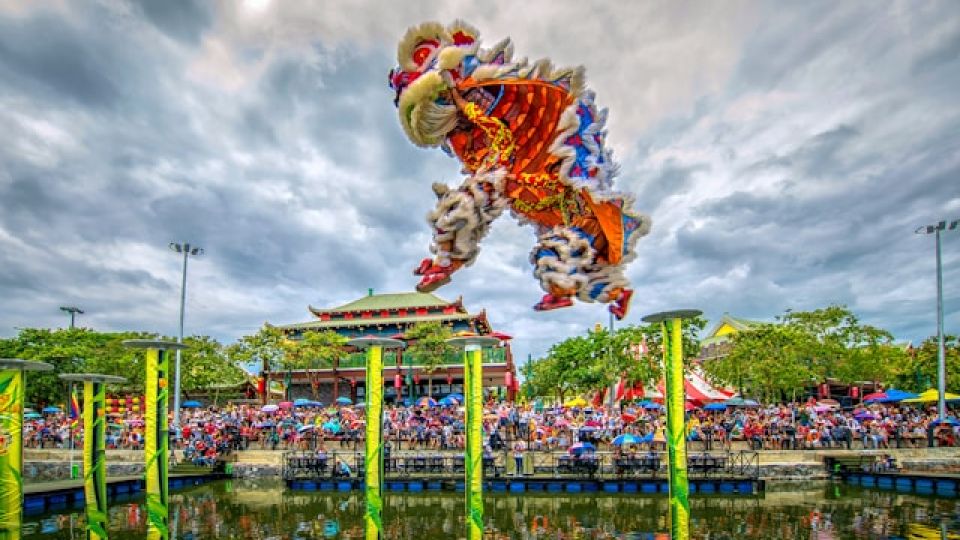August 1, 2024
DHAKA – With the world hanging at the precipice of what seems to be unending chaos, violence, geopolitical tensions and slow growth, certain institutions can play a powerful role in upholding the tenets of sustainable peace and stability.
One such institution is the Asia Society, which plays a prominent role in highlighting the role of Asia and ensuring its inclusion in the global community.
On April 1, 2024, Dr. Kyung-wha Kang, former Foreign Minister of South Korea, started her journey with Asia Society as President and CEO.
Having been affiliated with the UN as first, the UN deputy high commissioner for human rights, and then, as the assistant secretary-general for humanitarian affairs and deputy emergency relief coordinator in the Office for the Coordination of Humanitarian Affairs, she remains focused on the values of human dignity and peace and long shared and supported the objectives of Asia Society.
In this interview with Asia News Network (ANN), she shares her vision for Asia in the global community and the challenges that lie ahead.

File photo of Dr. Kyung-wha Kang and Amb. Nicholas Burns, US Ambassador to China at an event by Asia Society. PHOTO: ASIA SOCIETY
ANN: During your tenure as President and CEO of Asia Society, what would be some of your priorities?
Dr. Kang: Three months into my tenure as president of Asia Society, I am still learning about the depth and breadth of the work that we undertake at our 16 locations around the world – – from generating analysis of issues and policy recommendations, providing a platform for inclusive dialogue, empowering young leaders, to celebrating Asian and Asian diaspora art and culture.These are all geared towards fulfilling our core mission of building bridges and deepening mutual understanding and appreciation with the countries and peoples of Asia.
These endeavours have become ever more pressing and important today when geopolitical tensions and technological competition are rising in and around Asia and fragmented information environments make it very hard for people to understand each other within and across national borders.
As the new president, I hope to further strengthen the relevance and impact of our programs, while diversifying our focus to better reflect the full diversity of Asia and Asians.
Asia is a huge and very diverse region, and I don’t think the current work of our organisation adequately reflects that diversity.
For instance, I would like to see more of the Asean region registered in our work.I also would like to see our engagement with India deepened. India’s growing profile, economically and politically, calls for more work by Asia Society, both in New York and through our India Centre.

File photo of Dr. Kyung-wha Kang, CEO and President of Asia Society. PHOTO: ASIA SOCIETY
ANN: Many economists and analysts around the world believe that the 21st century is set to become the “Asian century” — from your perspective, what would Asia need to do to foster the prediction and work towards achieving the related goals?
Dr. Kang: The centre of gravity of global affairs, whether it’s economics or politics, is slowly but surely moving towards Asia, converging around the Asian region.
The U.S. pivot to Asia continues to unfold through the many dimensions of its Indo-Pacific strategy. Many other countries around the world have developed their own strategies and approaches to Asia, which underscores the relevance of developments in the region to the rest of the world.
In responding to this geopolitical and geoeconomic trend, the countries of Southeast Asia have the advantage of doing so with regional solidarity as institutionalised in Asean. The ASEAN outlook on the Indo-Pacific emphasises ASEAN centrality, and rightly so.
For nearly six decades, the countries of Southeast Asia have worked together, slowly but surely, to overcome historical divisions and build regional solidarity.
There are still challenges within the region, most notably the continuing strife in Myanmar after the 2021 coup. Also, the socio-economic gap within and between the Asean member countries continues to be a difficult challenge that must be addressed for the region’s progress towards greater integrity and unity.
But overall, the countries of Southeast Asia have not only built and collaborated through the numerous Asean mechanisms, but also strengthened the profile of Asean as the convenor of dialogue and cooperation in the wider Asia region and beyond.
Key countries wishing to secure a peaceful and prosperous future are eager to strengthen ties with ASEAN and its member states, and they are all actively participating in the manyASEAN-convened meetings at various levels that take place throughout the year.
The greatest current challenge for Asia and the world is the growing tension in U.S.-China relations, which is now one of long-term strategic competition politically, economically, andmore recently technologically.
Amid the deepening rivalry between the two big powers, it is clearly in the interest of Asean and its partners in Asia, such as my country, South Korea, to play an active role in mitigating the tension and shoring up the elements for co-prosperity and peace.
The region has major flashpoints that, if mismanaged, could flare up and take the whole region down the road of destruction, namely Taiwan and the Korean Peninsula.
The potential conflict dynamics in the two cases are different, but Asean countries can and should play an active role in keeping them in check, and hopefully, paving the way towards their peaceful resolution in the long run.

File photo of the Gateway of India in Mumbai. PHOTO: PIXABAY
ANN: Having been the first ever female Minister of Foreign Affairs of South Korea, and having held various diplomatic roles, how would your vision and priorities allow for a more diverse perspective and dialogue on regional peace and prosperity?
Dr. Kang: These are turbulent times for the global community. Multilateralism, i.e. the idea that countries, big and small, must work together to find shared solutions to common challenges, should pursue prosperity and peace together, has greatly frayed and is struggling to be re energised.
At the heart of the problem is that the UN Security Council, the highest making body in the UN system, has been unable to discharge its fundamental duty to maintain global peace and security, due to big power discord and rivalry. But the dysfunctional dynamics is also being played out in other multilateral intergovernmental fora.
The reality of today’s international relations is a far cry from the founding ideals of the UN system to uphold peace and human dignity. Indeed, the number of wars and violent conflicts around the world is at its highest since the end of WWII.
Under the circumstances, everyone and every institution who is committed to building bridges and strengthening the dynamics for peace and human dignity must utilise all the tools we have in our hands and redouble our efforts.
Non-profit, non-governmental organisations that work for global public goods are such entities. They must step up to the plate, with clear sight of the enormous challenges, and with humility about their abilities and place in the larger scheme of things but with a greater sense of efficacy.
Asia Society is endeavouring to do so, offering objective fact-based analysis of problems and the different and oftentimes confrontational positions of countries on vital issues, utilising the universal appeal of arts and culture, educating the public and empowering young leaders to take charge of the global challenges.


